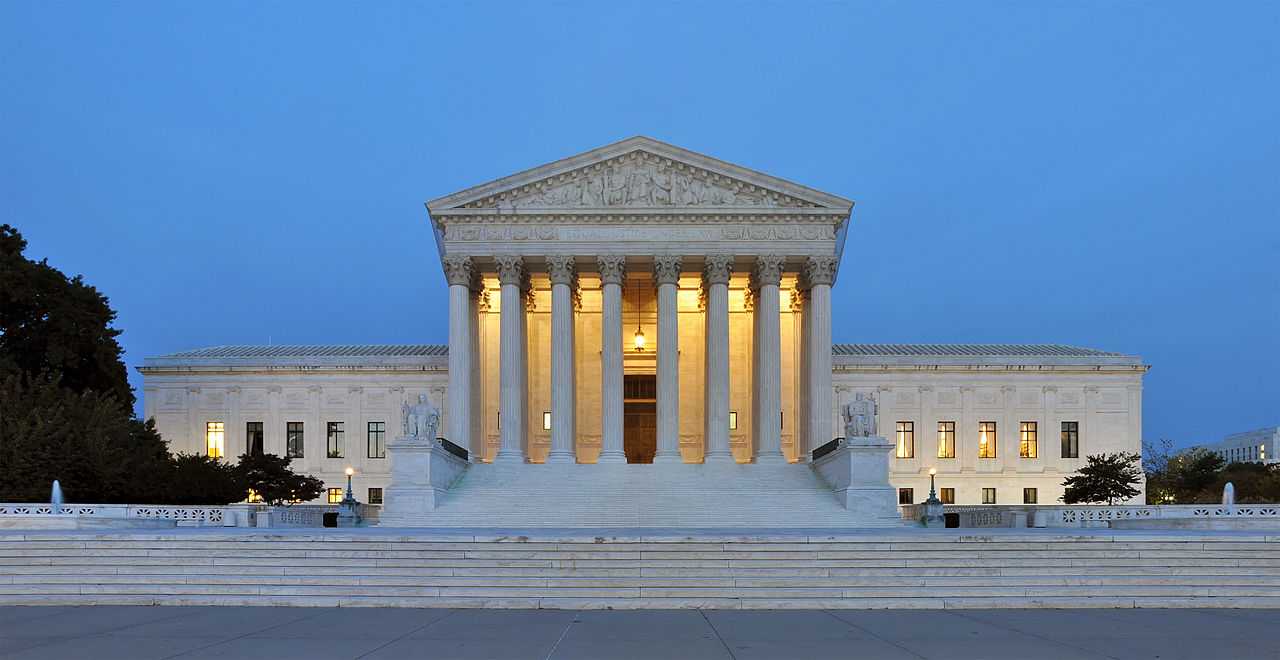
WASHINGTON — The U.S. Supreme Court has agreed to hear three cases that surround the question of whether or not employers, including Christian business owners, are prohibited under federal civil rights law from firing workers due to their “sexual orientation” or “gender identity.” The law has historically been interpreted as barring discrimination against women, but recent lower court rulings have read homosexuality and transgenderism into the statute.
The high court will now consider two appeals involving those who allege that they were fired due to their homosexuality, as well as a case out of Michigan centering on a Christian-owned funeral home, where a male employee was terminated after advising that he wished to begin dressing as a woman.
The nine justices will specifically need to consider whether the cases fall under Title VII of the Civil Rights Act of 1964, which states that “[i]t shall be an unlawful employment practice for an employer to fail or refuse to hire or to discharge any individual, or otherwise to discriminate against any individual with respect to his compensation, terms, conditions, or privileges of employment, because of such individual’s race, color, religion, sex, or national origin.”
The lower federal courts have had conflicting views on whether or not the term “sex” includes “sexual orientation” or “sex stereotyping,” or if it solely refers to disparities between men and women.
ZARDA V. ALTITUDE EXPRESS
One of the cases to be heard is Zarda v. Altitude Express, which centers on skydiving instructor Donald Zarda, who was fired by his employer following a complaint from the boyfriend of a female diver.
“Zarda often informed female clients of his sexual orientation — especially when they were accompanied by a husband or boyfriend — to mitigate any awkwardness that might arise from the fact that he was strapped so tightly to the woman,” legal documents surrounding the matter outline.
Altitude Express told Zarda that he was fired because he “failed to provide an enjoyable experience for the customer” as David Kengle, the boyfriend of Rosanna Orellana, complained to the company about Zarda’s remarks.
Zarda sued his employer in 2010 for discrimination, but died in a skydiving accident before the matter went to trial. The executors of his estate decided to keep the case active, but a district court ruled that while the suit may proceed, Title VII of the Civil Rights Act does not apply to homosexuality.
The three-judge panel of the Second Circuit Court of Appeals agreed, but the case was appealed en banc — or to the full Court of Appeals — which overturned the ruling last year, stating that “sexual orientation discrimination is motivated, at least in part, by sex and is thus a subset of sex discrimination.”
The U.S. Department of Justice had filed an amicus brief in 2017 contending that the Congressional intent of Title VII did not include sexuality.
“The essential element of sex discrimination under Title VII is that employees of one sex must be treated worse that similarly situated employees of the other sex, and sexual orientation discrimination simply does not have that effect,” it wrote. “Congress has made clear through its actions and inactions in this area that Title VII’s prohibition of sex discrimination does not encompass sexual orientation discrimination.”
HARRIS FUNERAL HOMES V. EEOC
 Another case that the U.S. Supreme Court accepted on Monday is R.G. & G.R. Harris Funeral Homes v. Equal Employment Opportunity Commission, which had been appealed by the religious liberties organization Alliance Defending Freedom (ADF).
Another case that the U.S. Supreme Court accepted on Monday is R.G. & G.R. Harris Funeral Homes v. Equal Employment Opportunity Commission, which had been appealed by the religious liberties organization Alliance Defending Freedom (ADF).
As previously reported, Anthony Stephens, who now goes by the name Aimee Stephens, was hired as the funeral director and embalmer for RG & GR Harris Funeral Homes in 2007. In 2013, Stephens informed his employer that he had been diagnosed with gender dysphoria and would therefore desire to wear a woman’s suit for work.
Owner Thomas Rost, who identifies as a Christian and serves on the board of directors for Salvation Army of Metro Detroit, has a company dress code in place, which states that males must wear dark suits and white shirts.
Because Stephens sought to wear female clothing, which is a violation of the dress code, and because Rost did not feel comfortable with providing a skirt suit due to his Christian convictions, Stephens was let go.
He consequently took the matter to the federal Equal Employment Opportunity Commission (EEOC), which sued Rost with the aid of the ACLU in alleging gender discrimination.
“R.G. employees understand that the dress code requires funeral directors to wear company-provided suits,” attorneys for Rost outlined in a legal brief. “Rost sincerely believes that he would be violating God’s commands if he were to pay for or otherwise permit one of RG’s funeral directors to wear the uniform for members of the opposite sex while at work.”
In August 2016, U.S. District Judge Sean Cox sided with the funeral home and dismissed the EEOC’s legal challenge.
“The court finds that the funeral home has met its initial burden of showing that enforcement of Title VII, and the body of sex-stereotyping case law that has developed under it, would impose a substantial burden on its ability to conduct business in accordance with its sincerely-held religious beliefs,” he wrote.
However, the Sixth Circuit Court of Appeals disagreed with Cox’s ruling and overturned the decision the following year.
“Discrimination against employees, either because of their failure to conform to sex stereotypes or their transgender and transitioning status, is illegal under Title VII. The unrefuted facts show that the funeral home fired Stephens because [he] refused to abide by [his] employer’s stereotypical conception of [his] sex, and therefore the EEOC is entitled to summary judgment as to its unlawful-termination claim,” wrote Judge Karen Nelson Moore on behalf of the unanimous panel.
THE QUESTION
The nation’s highest court will now analyze these two cases, as well as one involving a county child welfare services employee in Georgia, and consider whether “sexual orientation” and “sex stereotyping” can be read into the law’s prohibition against discrimination on the basis of sex.
The definition of “sex” under Title VII states that “[t]he terms ‘because of sex’ or ‘on the basis of sex’ include, but are not limited to, because of or on the basis of pregnancy, childbirth, or related medical conditions” and that pregnant women “shall be treated the same for all employment-related purposes …”
“Neither government agencies nor the courts have authority to rewrite federal law by replacing ‘sex’ with ‘gender identity’ — a change with widespread consequences for everyone,” ADF Senior Counsel John Bursch remarked in a statement.
Become a Christian News Network Supporter...


